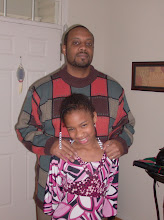
I read this article today and I thought this was so sad. It was sad for many reasons. One that she lost her job and house but most of all her kids hae not come and gotten her out of this situation. Read it for yourself and let me know what you think.
Barbara Harvey climbs into the back of her small Honda sport utility vehicle and snuggles with her two golden retrievers, her head nestled on a pillow propped against the driver's seat.
A former loan processor, the 67-year-old mother of three grown children said she never thought she'd spend her golden years sleeping in her car in a parking lot.
"This is my bed, my dogs," she said. "This is my life in this car right now."
Harvey was forced into homelessness this year after being laid off. She said that three-quarters of her income went to paying rent in Santa Barbara, where the median house in the scenic oceanfront city costs more than $1 million. She lost her condo two months ago and had little savings as backup.
"It went to hell in a handbasket," she said. "I didn't think this would happen to me. It's just something that I don't think that people think is going to happen to them, is what it amounts to. It happens very quickly, too."
Harvey now works part time for $8 an hour, and she draws Social Security to help make ends meet. But she still cannot afford an apartment, and so every night she pulls into a gated parking lot to sleep in her car, along with other women who find themselves in a similar predicament.
There are 12 parking lots across Santa Barbara that have been set up to accommodate the growing middle-class homelessness. These lots are believed to be part of the first program of its kind in the United States, according to organizers.
The lots open at 7 p.m. and close at 7 a.m. and are run by New Beginnings Counseling Center, a homeless outreach organization.
It is illegal for people in California to sleep in their cars on streets. New Beginnings worked with the city to allow the parking lots as a safe place for the homeless to sleep in their vehicles without being harassed by people on the streets or ticketed by police.
Harvey stays at the city's only parking lot for women. "This is very safe, and that's why I feel very comfortable," she said.
Nancy Kapp, the New Beginnings parking lot coordinator, said the group began seeing a need for the lots in recent months as California's foreclosure crisis hit the city hard. She said a growing number of senior citizens, women and lower- and middle-class families live on the streets.
"You look around today, and there are so many," said Kapp, who was homeless with her young daughter two decades ago. "I see women sleeping on benches. It's heartbreaking."
She added, "The way the economy is going, it's just amazing the people that are becoming homeless. It's hit the middle class."
She and others with New Beginnings walk the streets looking for people and families sleeping in their cars. The workers inform them about the parking lot program.
New Beginnings screens people to make sure they won't cause trouble. No alcohol or drugs are allowed in the parking lots.
"What we are trying to do is we pull bad apples out, and we put good apples in the parking lots and really help people out," said Shaw Tolley, another coordinator with New Beginnings.
Most of the time, the lots are transition points. New Beginnings works with each person to try to find a more permanent housing solution.
"It saddens me when they live in their vehicles," Tolley said. "It is not the most ideal situation for senior citizens and families, but it is reality."
He added, "We need to engage this problem. This is reality."
John Quigley, an economics professor at the University of California-Berkeley, said the California housing crisis has left many middle-class families temporarily homeless or forced them to go to food banks to feed their families.
"Part of the reason why it's so painful in Santa Barbara is, there's so little in the way of alternative housing," Quigley said. "If there were alternative low and moderate housing and rental accommodations that were reasonably close by, you can imagine it wouldn't have this desperate look to it as people living in their cars."
At the only lot for women in Santa Barbara, it's a tough existence. There are no showers or running water. On the night CNN visited, a half-dozen women were in the parking lot before nightfall.
Linn Labou, 54, lives in her car with four cats. She used to be in the National Guard and is on a waiting list for government housing, but the wait is a year long.
"I went looking for family, but I couldn't get them to help me," she said.
As for Harvey, she begins each day by walking her two dogs before going to her part-time job. She leaves the dogs in her car with its windows cracked while she works.






No comments:
Post a Comment